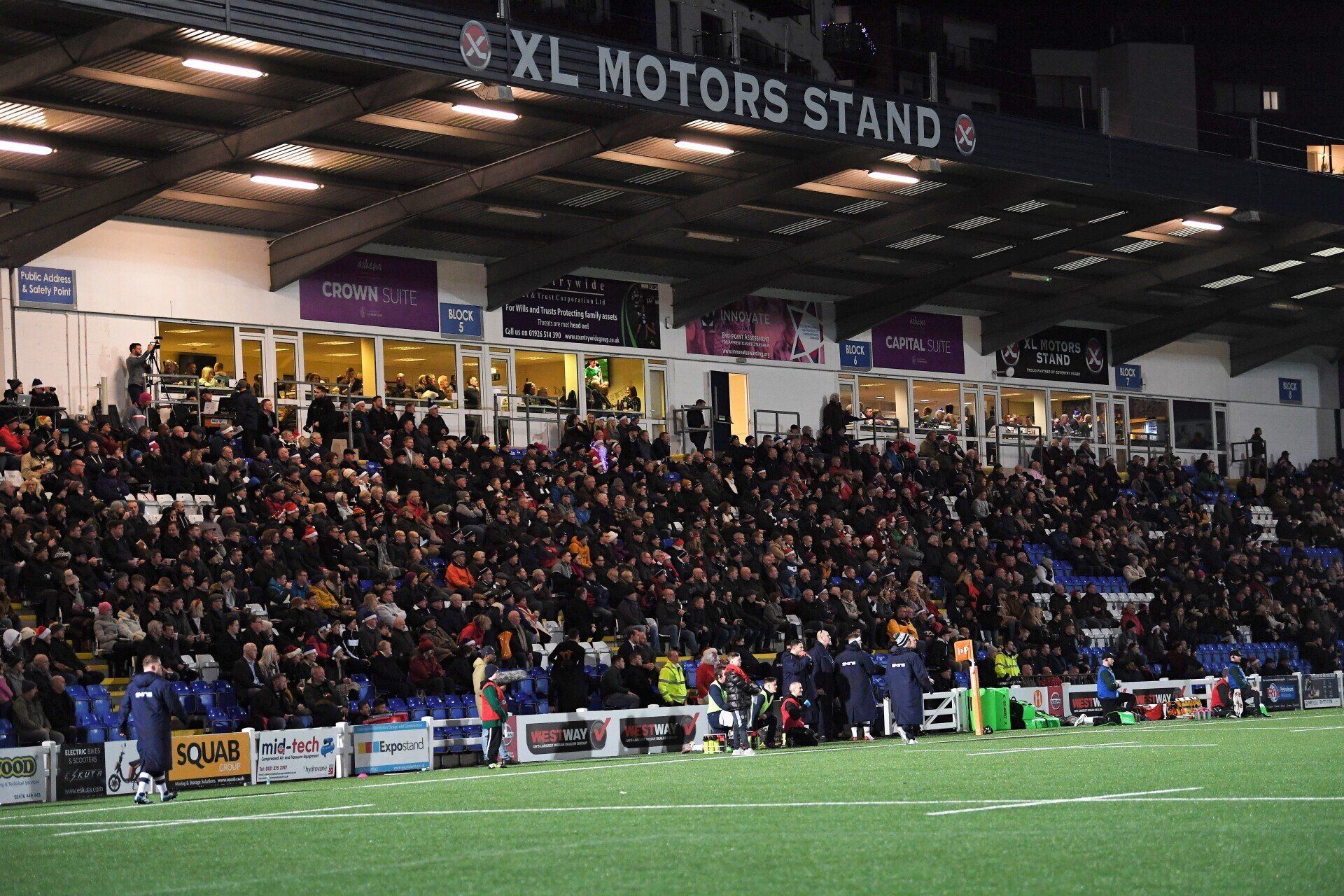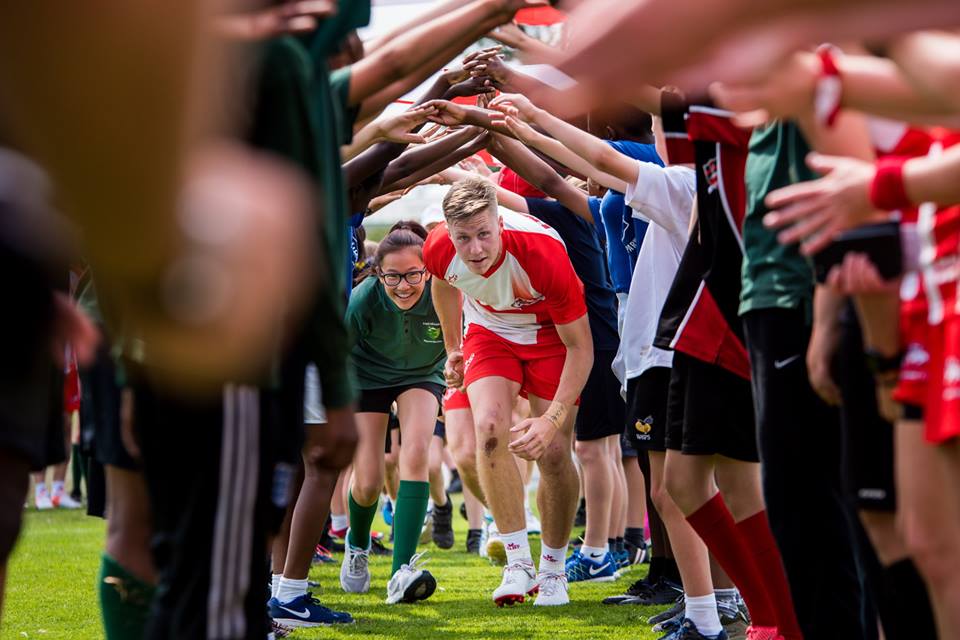case studies

You can never take digital for granted at any size of company Best practice brings unforeseen benefits Digital is now more important than ever to an SME, both to reinforce existing operations and to diversify into new areas The priority has to be making sure that the right foundations are in place As an independent consultant it is equally important to be able to multi-task effectively to support in-house operations For the last 18 months I have been working on a consultancy basis with Coventry Rugby Club, one of the most historic names in English – and indeed world – rugby. I proactively reached out to the club’s management to become involved because Coventry is one of those good news and positive projects which can give you a massive amount of intrinsic reward. Fortunately I thrive on my ability to multi-task and to be involved across a range of areas. Although brought in to look after the media, PR and content, the lockdown has seen me take on more commercial and sponsorship responsibilities, act as a ticket office and retail manager, strategic planning, and go way back to the old school by waiting tables for the first time since 2005! But it is in the digital areas where my experience has paid off the most and I don’t think it is overstating it to say that without plenty of hard work this time last year the club would not have been able to manage the lockdown as effectively as we have. Don’t get me wrong, times have been challenging, but we have been able to use digital across a range of areas to generate cashflow and much needed reserves that can help us build into the new season positively, whenever it starts. When I joined the club it is fair to say that there were a few areas which were still in the old school. Ticket sales, for example, were handled manually, with an 100 percent paper-based booking set-up for Season Tickets, manual ‘tick off’ entry lists at the turnstiles, very few advance ticket sales and a heavy weighting towards match days. Suffice to say the inefficiencies were glaring, as was the reliance on one person in the office to manage it. The process As with the vast majority of the RFU Championship - and indeed lower league sport anywhere - budget has been very limited, and there was even less infrastructure in place. A website, yes, but one which had had no development since being launched, but no e-commerce and no e-ticketing. It was the latter which took priority to increase efficiencies and bring the core business of the club, namely match days, more in line with best practice, both in terms of increasing reach and advance ticket sales but also in helping other areas, beer ordering, for example, to be approached with greater data and understanding. We were understandably limited in terms of the ticketing companies we could work with, whether because of the need for experience in the sporting sector, the lack of budget for investment, and the need to keep the cost for customers and users low. Future Ticketing were the ideal partner who ticked all three boxes, along with many more, such as a web-based dashboard which is as easy to use on a mobile as a desktop, a scanner app which makes the turnstile operators’ life simple, and clear reporting and event set-up processes. My experience had been in customer journey rather than the set-up and implementation of a ticketing system, but through the hard work of Jo in the Coventry offices and Ann Marie at Future Ticketing we had everything up and running in no time. The impact The 2018/19 season had seen a rough split of 25:75 in terms of advance:matchday ticket sales, with a sizeable number of people paying in cash. My aim at the start of the process was to have this ratio reversed by the end of the season, and by the time the lockdown came into effect we were almost there, with a 65:35 split, which also in turn minimised matchday queues at the ticket office and turnstiles and reduced the amount of cash be held on site. Meanwhile the introduction of scannable season cards eliminated in one fell swoop both the long queues while the turnstile operator ticked off names, not to mention saving tens of sheets of paper which had needed to be printed off each week. On the data front the scanning reports has given us the insight into when people come into the stadium, informing our plans for matchdays next season, and the size of the email database went up between 5 and 10 percent each week. There were other additional benefits of going with Future Ticketing. I hadn’t included other events such as rugby camps in the original brief, so it was very pleasing to not just find out that we could have those events set up, but to be able to set them up ourselves with relatively little effort ended up being a superb addition into the club’s commercial mix, again reducing the need for everything to be done manually by someone in the office. The lockdown Putting it simply, had we not gone with Future Ticketing then the lockdown would not have gone as relatively smoothly as it has. Not in terms of season ticket renewals, which would have been done by any ticketing system, but in how the club was able to introduce multi-sport camps and Sunday lunch events, all using the same platform. This increased the efficiency in terms of the number of systems being used but also in the accounting processes, equally important given a reduction in workforce due to furloughs. I’m particularly proud of the way we have set up the Sunday lunches to manage things like staggered arrival times, the pre-ordering of food choices, advance payments, and the collection of names and contact details, getting ahead of the curve in these days of increased requirements from central government. Not bad for a ticketing system brought in on a tight budget! The future This article has focused on one aspect of the digital, but it is important to remember that you need to get your processes right before you put the sheen and gloss on. There is no point in having the shiniest website full of the latest bells and whistles if no one can order anything through it. The work I’ve been able to do with Future Ticketing, and then training and empowering other members of the team at Coventry Rugby, has given the club a solid foundation and the right set of tools from which a stronger future can be built. It is also the embodiment of why I named my communications business New Dogs Old Tricks - the truisms of what you need to make a business successful still apply. Finally, I’ve also been enjoying using my full range of skills and experience, whether in putting the strategy together; building, implementing and developing a system; delivering the actual events (including waiting tables for the first time in 15 years); and then setting out the next steps for the future.



